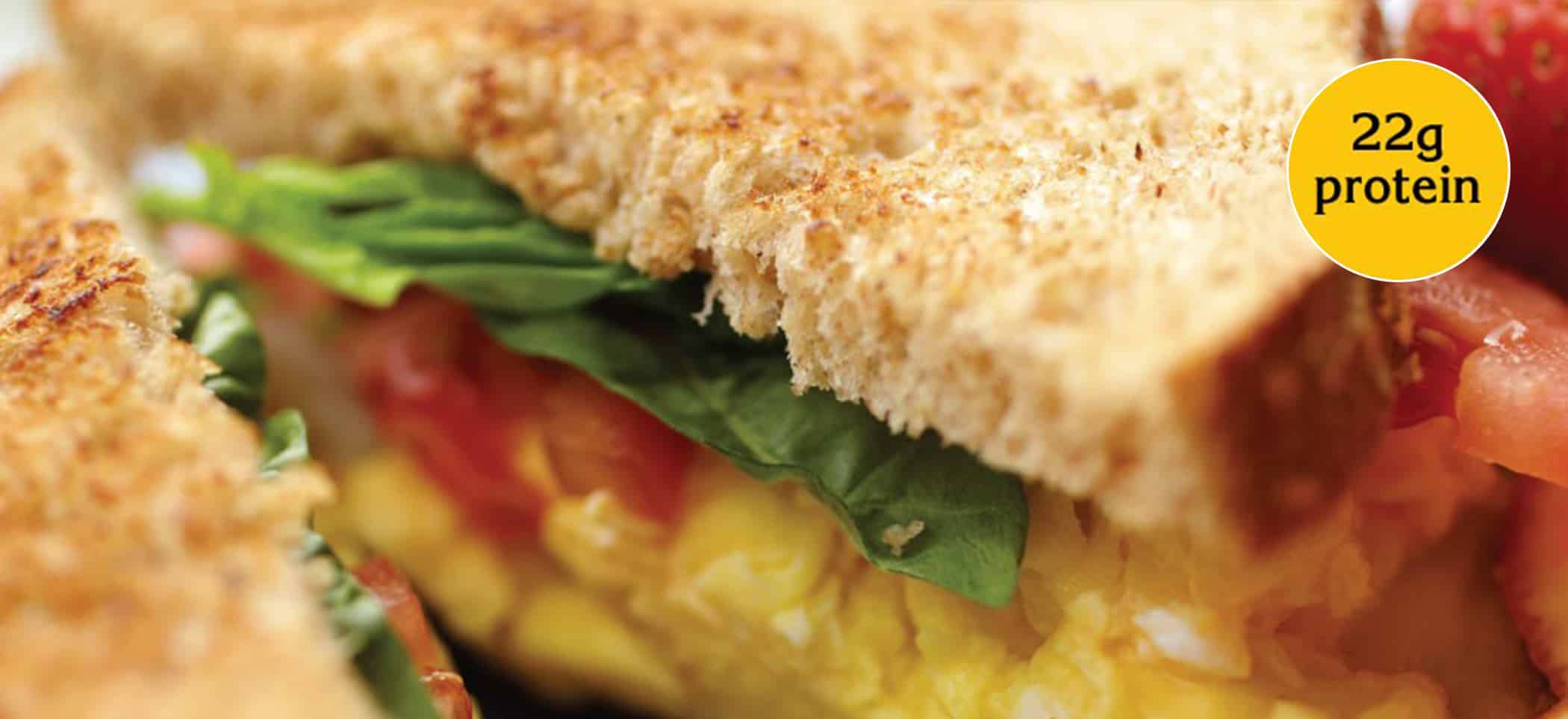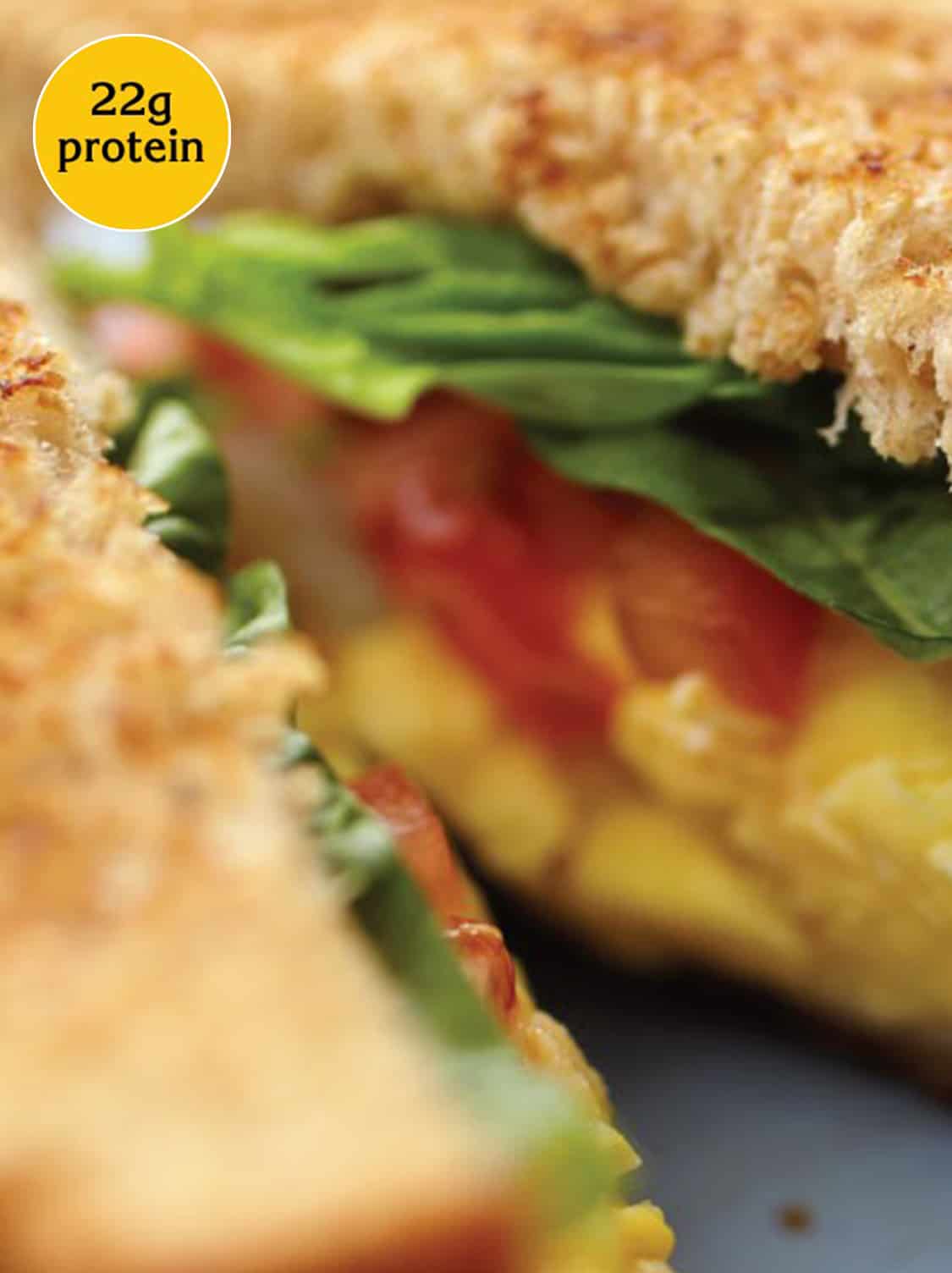

Directions
BEAT eggs, milk, salt and pepper in medium bowl until blended.
HEAT 1 tsp. butter in large nonstick skillet over medium heat until hot. POUR egg mixture into skillet. As eggs begin to set, gently PULL the eggs across the pan with an inverted turner, forming large soft curds. CONTINUE cooking— pulling, lifting and folding eggs—until thickened and no visible liquid egg remains. Do not stir constantly. REMOVE from pan. CLEAN skillet.
SPREAD remaining 2 tsp. butter evenly on one side of each bread slice (or brush lightly with oil). PLACE 2 slices in skillet, buttered side down. TOP evenly with scrambled eggs, cheese, tomato and basil. COVER with remaining bread, buttered side up.
COOK sandwiches over medium heat, turning once, until bread is toasted and cheese is melted, 2 to 4 minutes.
Ingredients
- 2 large EGGS
- 2 Tbsp. milk OR water
- 3 tsp. butter OR olive oil, DIVIDED
- 4 slices whole wheat OR white bread
- 2 slices mozzarella cheese
- 4 slices tomato
- 6 fresh basil leaves OR 1/4 tsp dried basil leaves
Tips
Avoid cast iron. Eggs scrambled in a cast iron skillet can turn a greenish shade. This harmless but unappealing color change is the result of a chemical reaction between iron in the pan and sulfur in egg whites.
This recipe is an excellent source of protein and choline, and a good source of vitamin A and folate.
Don’t overcook. The heat retained in the pan will continue to cook and firm up the eggs after pan is removed from heat.
How long to beat? It’s a matter of preference. Light beating produces more dense scrambled eggs. Vigorous beating aerates the eggs, resulting in lighter fluffier curds.
Per serving: 1/2 of recipe
- Calories 349
- Total fat 18 g
- Saturated fat 9 g
- Polyunsaturated fat 2 g
- Monounsaturated fat 4 g
- Cholesterol 213 mg
- Sodium 530 mg
- Carbohydrates 27 g
- Fiber 4 g
- Sugar 4 g
- Protein 20 g
- Vitamin A 152 mcg
- Vitamin D 1 mcg
- Folate 54 mcg
- Choline 168 mg
- Calcium 293 mg
- Iron 2 mg
- Potassium 309 mg
To ensure food safety, eggs should be cooked until both the yolk and the white are firm. Consuming raw or undercooked eggs may increase your risk of foodborne illness, especially for those with certain medical conditions. For recipes that call for eggs that are raw or undercooked when the dish is served, use either pasteurized shell eggs that have been treated to destroy Salmonella, or use pasteurized egg products.
